I have had people angry with me because there was no formal way for them to disaffiliate with the Catholic Church. A few years ago, there was an effort to allow those intellectually and/or emotionally alienated from the faith to juridically separate themselves with a written document signed by their pastor and bishop. But clergy largely refused to sign it. The legitimacy of this whole business was called into question regarding dispensations, marriage annulment cases and tribunals. Complicating matters further, there was a disagreement between two Vatican congregations— Liturgy and Doctrine of the Faith. The pressing doctrinal fact remains that baptism is a once-and-forever sacrament. Baptism cleanses us of original sin, infuses sanctifying grace, makes one an adopted child of the Father and a temple of the Holy Spirit. We become a Christian and a member of the Church with privileges and duties. Baptized a Catholic, one remains always a Catholic. A person might become lapsed or start worshiping in a non-Catholic church, but he or she remains a Catholic and will be judged by God as a Catholic.
There are many others that insist upon being designated as “Catholic” when they have long since stopped living the faith. Their religion is treated as a club or as an ethnic matter. When pollsters interview such people on beliefs and the value shifts of the day, the results are skewed to the left. That is why those seeking serious statistics distinguish between those Catholics that regularly participate at Mass and those that do not.
Can one be a Catholic in truth while abiding in mortal sin, literally with one foot in hell? Remember that the deliberate failure (through our own fault) to go to Mass on Sundays and holy days is a grievous sin that brings us to perdition. Status becomes even more dire when a host of other mortal sins are added like fornication, adultery, homosexuality, abortion, and various forms of contraception. The failure to worship dishonors almighty God. The so-called pelvis or sexual sins bring dishonor to created persons and human life. The trouble with the latter is not a misplaced preoccupation of the Church with human sexuality but rather a failure of men and women to respect themselves as bodily creatures. Human dignity is violated through disobedience to both natural and divine positive law.
It may be that many others go through the motions of faith but suffer from missing or inadequate religious formation. How many do not understand or reject the “real presence” of Christ in the Eucharist? Does everyone in the pews appreciate that the Mass is an unbloody re-presentation of the immolation of Calvary? Do we go to church solely from duty or do we intend to adore the trinitarian God? Do we all pray? Are there some that do not know how? Do we invoke the Holy Spirit and petition for the intercession of the saints? Do we see the priest at the altar as one who participates in the one priesthood of Jesus Christ? He is so very different from a minister as in Protestant sects.
At baptism we were anointed as priest, prophet, and king. A priestly people render sacrifice, literally taking up their crosses to follow Jesus— spiritually grafting themselves to Jesus as an acceptable offering to the Father. As a nation of prophets, we are commissioned to proclaim and share the Good News of the Lord to all whom we meet. Given that Jesus is king, and Mary is the queen mother, we are made family members of the royal household of God. Do we acknowledge this privileged dignity and dutifully preach the truth and participate in Sunday Mass?
Salvation requires faith in Christ; however, it is more nuanced than the evangelical’s easy profession of Jesus as one’s “personal Lord and savior.” The Catholic appreciation takes into consideration the Gospel of Mark, the writings of Paul and the epistle by James. We are not saved by faith alone, but by grace alone. Works are important as well, because remade in his likeness, we allow the Lord to minister through us. Whatever Jesus does, has value. Saving faith includes the ingredients of charity and obedience. We must have both a personal and a corporate relationship with Christ that is realized through loving fidelity (John 14:15; 24).
Affiliation with the Church is not optional. Just like the Jewish people of old, we are called to the Lord as members of his new People of God or New Zion— the Church. The Church is the mystical body of Christ. Just as Jesus is the one WAY to the Father, the Church is also necessarily the way— the means through which we sacramentally encounter Christ. It is for this reason that we teach that there is no salvation outside the Church. This provides the mandate for evangelization and for the Church’s prayerful intervention for everyone. While the identities of “the many” that will be saved remains with divine providence, the Church cooperates in proclaiming the universal call to salvation.
Our Lord makes a point of instituting the Church and giving Peter the keys to the kingdom. Jesus gives the promise that the Church will prevail until the very end of the world. This is the same Church we proclaim in the Creed as one, holy, catholic, and apostolic. These four marks find their home in Roman Catholicism.
Too often we use political labels for the persuasion or depth of one’s Catholicism. We say that this or that person is “liberal” or “conservative.” The true measure of faith is between “orthodoxy” and “heresy.” One cannot be a good Catholic and subscribe to false doctrines or immoral practices. We are also obliged to remain in union with the pope who is the Vicar of Christ and the successor to St. Peter. Such relationships can be strained when bishops of Rome promote their fallible ideas over immutable truths; but we trust that the Holy Spirit will preserve both the faith and the papacy. The Pope is the servant of the Word and not its master. His trust is to preserve and to pass on the timeless faith. It is for this reason that Catholics have an obligation to know the Scriptures and the Catechism. Too many are ignorant and easily swayed by the changing fads and whimsy of the day. Indeed, many have spoken of an unofficial schism that afflicts the Church. We should make the firm resolution to practice the Catholic faith, despite outside pressures, disappointments inside the Church, and personal doubts and weaknesses.
Filed under: Uncategorized | Tagged: Baptism, Catholic, catholicism, christianity, Faith |



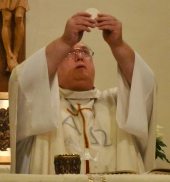






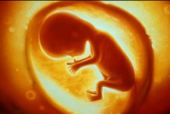


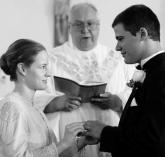


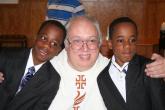






























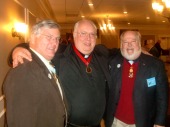
HELEN
“Baptism cleanses us of original sin, infuses sanctifying grace, makes one an adopted child of the Father and a temple of the Holy Spirit. We become a Christian and a member of the Church with privileges and duties. Baptized a Catholic, one remains always a Catholic. A person might become lapsed or start worshiping in a non-Catholic church, but he or she remains a Catholic and will be judged by God as a Catholic.”
Please clarify how this applies to those of us who were baptized Protestant and became Catholic later.
FATHER JOE
All genuine baptism is directed to unity in the true church instituted by Christ although a Protestant is not juridically a member of the Catholic Church. If one is legitimately baptized as a non-Catholic Christian, he or she may be received into the Catholic Church but should not be re-baptized. Our practice is to give Confirmation and First Eucharist. That makes a person fully initiated into the Catholic Church. It is after this reception that a person comes under the laws and precepts of the Catholic Church.